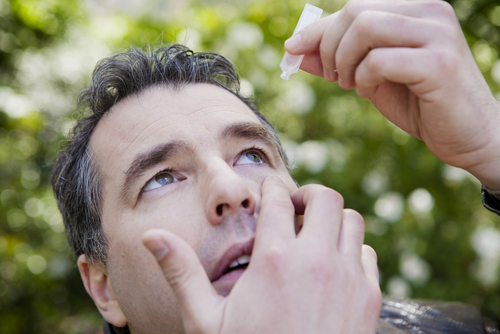Is It Dry Eye or Meibomian Gland Dysfunction?

Do you suffer from dry and irritated eyes? It could be dry eye disease, or meibomian gland dysfunction.
These are two different reasons that your eyes could be dry. While the symptoms for both conditions are similar, their root causes are different.
Both dry eye syndrome and meibomian gland dysfunction often stem from inadequate tear production. This can be caused by a lack of tear production, or by the production of non-lubricating tears.
Both cases result in your eyes not having proper lubrication. When your eyes do not have proper lubrication, they become dry and irritated.
If left untreated, dry eye syndrome can be painful and limit your quality of life. It can make it difficult to complete tasks both on paper and on the computer. It can limit your ability to drive, read, or watch television.
To properly treat your dry eyes, it is imperative to know what is causing them. Is it dry eye or meibomian gland dysfunction?
The only way to know for certain is through an eye exam. Keep reading to learn more about dry syndrome and meibomian gland dysfunction!
Dry Eye Syndrome
Dry eye syndrome occurs most often when your eyes don’t produce enough tears. Tears help to keep your eyes lubricated.
When your tear ducts do not produce enough tears, your eyes become dry and irritated. Symptoms of dry eye syndrome include:
- Dry and irritated eyes
- Red eyes
- Watery eyes
- Sensitivity to light
- Blurred vision
Dry conditions both indoors and outdoors can make these symptoms worse. This is especially true in cold or windy climates.
Meibomian Gland Dysfunction
Meibomian Gland dysfunction (MGD) is a condition that many people with dry eye syndrome may also suffer from. It accounts for 90% of all dry eye cases.
MGD is caused by an inadequate amount of oil in the tears that your eyes produce. The lack of lubricating oil is due to a blockage in the glands in your eyelids.
These glands are called your meibomian glands. The blockage in your meibomian glands causes your tears to evaporate faster than normal before they can hydrate and lubricate your eyes.
While symptoms of meibomian gland dysfunction can be similar to dry eye syndrome, they differ in the root cause. MGD is not caused by lack of tears, but because of oil glands being blocked and unable to secrete oil.
Seek Diagnosis and Treatment
If you suffer from dry and irritated eyes, the best course of action is to schedule an eye exam. Your eye doctor can properly diagnose your dry eye condition and prescribe treatment as necessary.
Before your exam, artificial tears can help to alleviate the discomfort of both dry eye syndrome and MGD.
During your eye exam, your doctor will run a series of evaluations on your eyes to determine if you suffer from meibomian gland dysfunction. These evaluations include an imaging capture of your tear film and meibomian glands.
These evaluations will allow your eye doctor to diagnose your dry eye condition. Proper diagnosis is the only way to determine treatment for MGD or dry eye syndrome.
Do you suffer from dry and irritated eyes? It could be meibomian gland dysfunction.
The only way to know for sure is through an eye exam. Schedule yours today with Pinke Eye Center in Shelton, CT and get your eyes back on the road to normal!


